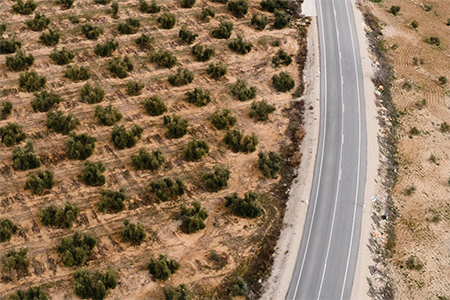
Author

Omar Sami
Attorney at Law (Germany) I Legal and Tax Consultant (UAE) I Managing Partner
The recognition reduces the compliance burden for multinational companies and strengthens the UAE’s position in the OECD’s global tax framework.
On August 25, 2025, the Ministry of Finance of the United Arab Emirates (UAE) announced that the Organisation for Economic Co-operation and Development (OECD) has granted the UAE’s Domestic Minimum Top-up Tax (DMTT) the “Qualified” transitional status. The measure was included in the OECD’s Central Record of Legislation with Transitional Qualified Status.
For multinational enterprise groups (MNEs), this means:
- Exemption from foreign top-up taxes: No additional tax is due in other countries on profits generated in the UAE.
- OECD Safe Harbour Advantage: No recalculation of top-up taxes required in other jurisdictions.
- Reduced audit risk: Recognition by the OECD reduces the risk of double taxation and complex audit procedures.
- Administrative relief: Safe Harbour rules reduce reporting obligations and burdens for companies and tax authorities.
The DMTT applies from January 1, 2025 to corporate groups with a consolidated annual turnover of at least EUR 750 million in two of the four previous financial years. It is based on the OECD-GloBE Model Rules and ensures that an effective minimum tax rate of 15% is achieved in the UAE.
I. OECD-Pillar Two
Pillar Two is part of the OECD/G20 project to combat Base Erosion and Profit Shifting (BEPS). The aim is to introduce a global minimum tax of 15% for large multinational corporations. Key instruments include:
- Income Inclusion Rule (IIR): Post-taxation at the parent company level.
- Undertaxed Profits Rule (UTPR): Taxation rights are transferred to other countries if income is not taxed sufficiently.
- Domestic Minimum Top-up Tax (DMTT): Allows states to collect the minimum tax in their own country so that tax revenue does not flow abroad.
Over 140 jurisdictions, including the UAE, are part of the Inclusive Framework. Transitional arrangements (“Safe Harbours”) of the OECD are designed to facilitate the start and create legal certainty.
II. DMTT in the UAE
- Basis: Cabinet Resolution No. 142/2024, valid from financial year 2025.
- Only applies to MNEs above the turnover threshold of EUR 750 million.
- Exemptions: Government agencies, international organizations, pension funds and certain investment funds.
- Contains Safe Harbour rules and de minimis thresholds.
- Filing deadlines: 15 months after the end of the financial year (18 months in the transitional year).
By introducing the DMTT, the UAE ensures that the minimum tax is levied domestically and does not flow to other countries.
III. Legal assessment
Profits from the UAE are recognized internationally and are not taxed twice. At the same time, there are less complex reporting obligations thanks to Safe Harbour.
- Recommended immediate actions for MNEs:
- Check whether the corporate group falls under the DMTT (turnover thresholds, exemptions).
- Take into account disclosure requirements in the 2024 annual financial statements and prepare interim reports for 2025.
- Ensure that Country-by-Country Reporting (CbCR) meets OECD requirements.
- Adjustment of transfer pricing guidelines and internal tax allocations.
TME Legal Consultants






